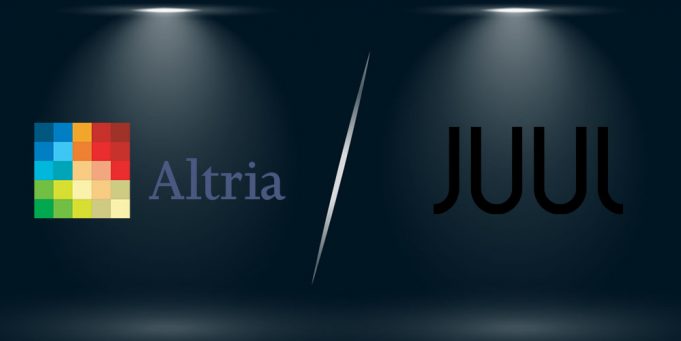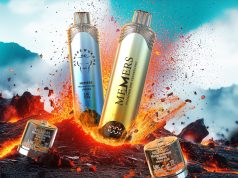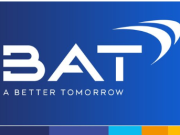Altria Group recently announced that it would acquire NJOY Holdings Inc., an independent vaping manufacturer, in a benchmark multi-billion dollar deal.
Altria is a tobacco company. It is the largest tobacco enterprise in the United States and continues to produce cigarette brands like Marlboro. However, corporate leadership at Altria has tried for years to diversify away from combustible products into smoke-free options like its formerly closely-related competitor, the controversial firm Philip Morris International (PMI). A smoke-free line of products isn’t that easy to develop or acquire, though.
In 2018, Altria Group invested $12.8 billion in Juul Labs to lead its future investments in smoke-free products. This turned out to be a financial and political headache that cost the cigarette company and its investors literally billions over the past few years. Also, with an ongoing series of legal challenges from state and federal governments, Juul Labs trifled with youth smoking prevention laws way too often which resulted in a multi-district settlement worth hundreds of millions of dollars. But, that’s very old news.
Juul ballooned with Altria’s backing but quickly became the poster child of the anti-vaping movement and the apparent perpetrator of the youth vaping epidemic that reached its first peak under the administration of President Donald Trump and the tenure of several right-wing Food and Drug Administration commissioners that trumpeted such claims as nothing more than a culture war flashpoint that fed into the moral panics propagated by tobacco control organizations that likened vaping to smoking. Even with towering evidence to suggest the contrary, the FDA under former commissioner Scott Gottlieb initiated one the most invasive and impactful major corporate crackdowns in recent U.S. history.
Moving Away from Juul Labs
Now, Altria has gotten rid of Juul Labs and is now seeking to be free from other government investigations and legal proceedings that lump Juul with Altria. Altria Group recently asked the Federal Trade Commission to be removed from a legal challenge brought by the federal government’s economic competition enforcement agency. That challenge questions the legal competitiveness of the Juul investment but has been pending for quite some time. This is a moot point in the eyes of Altria. This is definitely an indication that the company has now invested in one of Juul’s competitors.
In a press statement, Altria Group said that it has entered into a “definitive agreement” to acquire NJOY for $2.75 billion in cash. An additional $500 million in cash payments will be transferred that are simply dependent upon regulatory outcomes that deal with NJOY’s vaping products currently before agencies such as the Food and Drug Administration’s Center for Tobacco Products.
“We believe we can responsibly accelerate U.S. adult smoker and competitive adult vaper adoption of NJOY ACE in ways that NJOY could not as a standalone company,” said Billy Gifford, the CEO of Altria Group, in the same press statement as above. “We believe the strengths of our commercial resources can benefit adult tobacco consumers and expand competition. We are also excited to welcome NJOY’s talented employees to Altria at closing.”
NJOY did it better
One of the strategic elements of this acquisition is that NJOY owns the only line of pod-based e-cigarette products to have successful FDA approvals. Not even Juul Labs has approvals.
If anything, it is a bit ironic. Given that Altria invested literally billions in Juul as a company and augmented its government affairs and compliance outfit, Juul was unable to acquire what NJOY acquired — marketing granted orders per the Premarket Tobacco Applications regulatory pipeline. Currently, NJOY has received six marketing granted orders from the Food and Drug Administration Center for Tobacco Products PMTA pipeline.
These include the actual NJOY Ace e-vapor device and three pods that are rich in tobacco and classic tobacco flavored at 5 and 2.4 percent nicotine concentrations. NJOY’s two disposables products also are approved. All of these products are also available behind the counters at bodegas, convenience stores, and supermarkets.
Other data shows the scope of NJOY’s retail business. It is quite significant. NJOY Ace-related products represent 85 percent of the company’s 2022 total retail shipments. NJOY products, including the NJOY Daily disposables, are available at over 23,000 retail stores across the United States. Further, NJOY products were not included among the most used usual brand among middle and high school students who identify as e-cigarette users in the 2022 National Youth Tobacco Survey. From the supply chain positions, NJOY also has a direct commercial relationship with Smoore, or the Shenzhen Smoore Technology Limited firm. Smoore is proudly one of the leading development firms in the global vaping market.
Dynamic deals, still tobacco
These elements are extremely attractive to Altria. Compared to the investment into Juul Labs based on the mere promise of their technology and market share, NJOY has proven successful beyond a technology proof-of-concept and the availability of products. It is significant. Juul Labs, historically, has squandered its position in the vaping market through extremely terrible decision-making and management. It is no secret that I am a critic of Juul Labs. Heck, I’ve called the company the “Walmart of vaping” in a way that was beyond demeaning. I firmly believe, though, that Juul was bloated in its personality and corporate culture due in part to the investment from Altria. Altria took a huge bet on Juul and failed. Altria’s acquisition of NJOY is now a middle finger to Juul, and that is actually a good thing from an economic perspective.
While I disapprove of NJOY going to the “tobacco dark side” so to speak, it shows that the company accomplished major success. A New York hedge fund, Mudrick Capital Management, also won big with its six years of investment in NJOY, the Wall Street Journal reported. With the investment from Altria, Mudrick’s investment of about $75 million could literally climb to $1.33 billion with a profit that is estimated to be $1.26 billion. Mudrick controlled the majority of NJOY for several years too. Mudrick also brought the current executive team to the company, with Jason Mudrick of the fund, becoming the chair of the firm’s board to oversee the sale.
This deal will further monopolize and cartelize the overall e-vapor market. That’s bad news. At least it isn’t Juul taking lead again.












